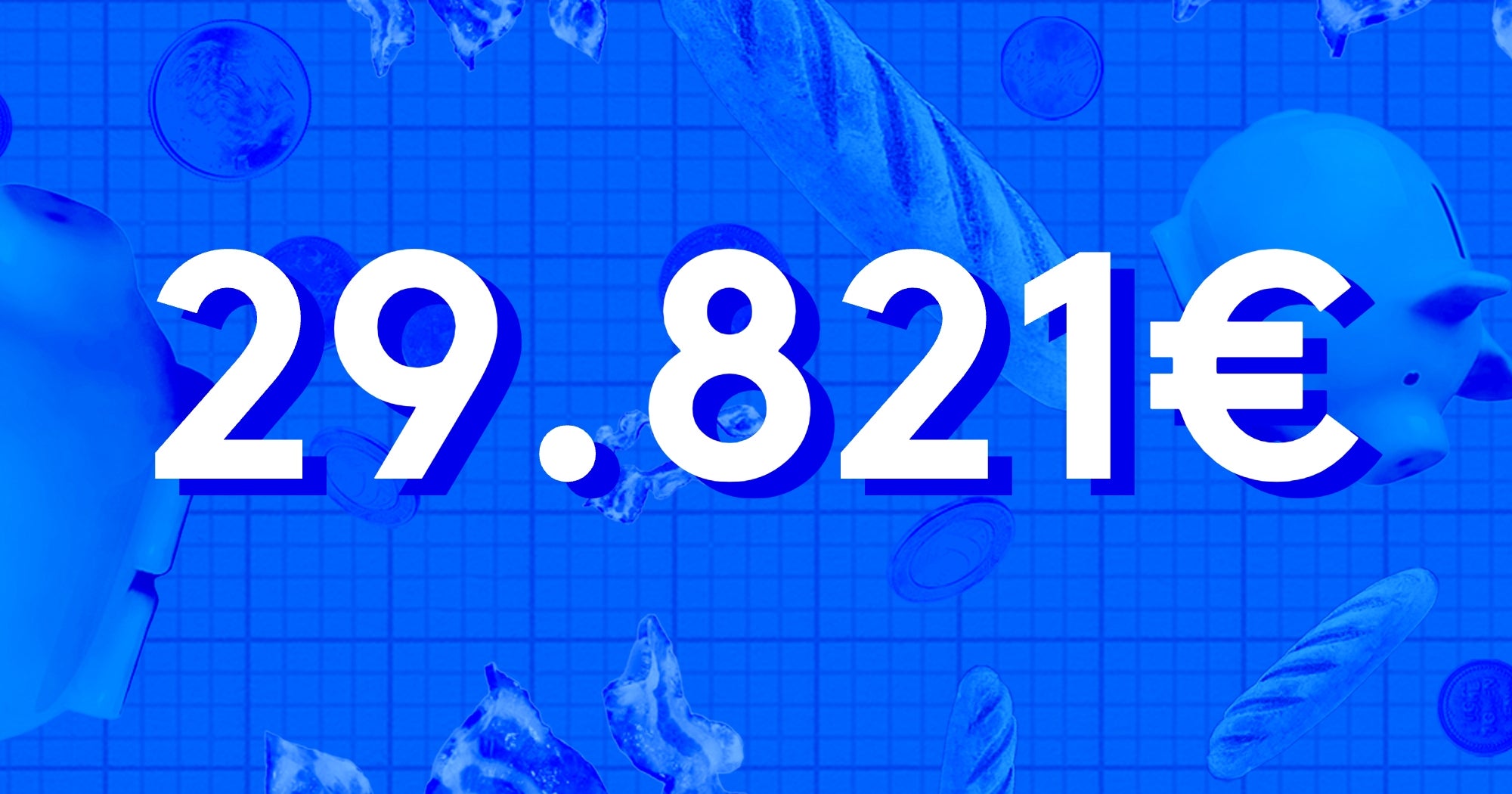After 6 years, I am taking a therapy break.
Nach 6 Jahren mache ich eine Therapiepause.
In this article, Grace Victory tells our editor Sadhbh O’Sullivan about her personal experiences.
The process of trauma recovery can look completely different for people who cannot understand what one has been through. You might think that therapy means medication and a definite moment when you feel “better”. But I know from my own experience that it’s not that simple. In December 2020, when I was seven months pregnant with my first child, I was admitted to the hospital with COVID-19. After giving birth to my child via emergency C-section on Christmas Eve, I was put into an induced coma and did not meet my first child for three months. Since then, I have been healing.
I started therapy at the age of 27, almost six years ago, to process my experiences with sexual trauma and eating disorders. This was long before my coma, so working on myself has always been an important part of my life. As a YouTuber, influencer, and author, I have talked a lot about it because it is so important to me.
Now I have decided to take a break from my therapy.
It was not necessarily a conscious decision, but rather had financial reasons – my therapist was too expensive for me, and with two children, I have to prioritize to be able to support them. So I decided to try to implement everything I had learned: it helps to remember that every feeling has its justification; feeling the ground beneath your feet is a quick and easy way to ground yourself; trauma resides in the body; crying is a sign of strength. I thought I would be really triggered and have to make a lot of effort, but actually, I’m doing fine. What I have learned in my sessions has changed me to the core. I didn’t realize how profound these changes were until I finished therapy and took the time to reflect and see how far I have come.
- Eine Woche in Hildesheim mit einem Jahreseinkommen von 15.000 €
- H&M’s nächste Designer-Kooperation ist mit Rabanne
- Victoria Beckham trug gerade Puddle-Hosen auf die Pariser Art
Due to my experiences with a serious illness, being in the intensive care unit, and being separated from my child, I was diagnosed with post-traumatic stress disorder (an anxiety disorder caused by very stressful, frightening, or distressing events). There is also grief, denial, acceptance, and shame. Mothers in general blame themselves for every little thing that could go wrong with their child, during childbirth, or during pregnancy, and often it takes a very long time for them to forgive themselves and accept. There are things that you simply cannot comprehend because they are so unimaginable, and that’s okay.
But trauma is not only psychological: my body also went through hell and back. I had a blood clot in my lung, was paralyzed, couldn’t speak, couldn’t eat, and couldn’t walk. The physical recovery from that was long and tough. I believe that much of what I feel now are remnants of trauma stored in my body – not just from the past few years. I have some issues with my hip after giving birth, which have been examined through an MRI and osteopathy, but now I am also working on somatic trauma recovery in my free time (an alternative therapy that aims to treat trauma by connecting mind and body). It’s all well and good to do many therapies, but there is also a lot of physical work that one has to do.
Often, we suppress our feelings because we are afraid of how they feel. We are embarrassed, filled with shame, and afraid of that darkness. After my COVID coma and the intensive care unit and this particular trauma of not being there for my child, I was completely disoriented. I didn’t just cry and carry on with my day. I was completely out of touch for months. I was a shell, didn’t recognize who I was, and couldn’t admit to myself what I had actually been through.
Ich habe so viele traumatische Erfahrungen gemacht, dass ich meinen Körper oft „verlassen“ habe, weil er sich nicht wie ein sicherer Ort anfühlte. Als ich im Koma lag, hatte ich diese intensiven, verrückten Koma-Träume, in denen ich die Situation verließ, in der ich mich befand. Die sexuellen Übergriffe, die ich erlebt habe, haben mich dazu gebracht, meinen Körper zu verlassen. Ebenso wie die Essstörungen. Heute weiß ich, dass es heilsam ist, sich die eigenen Gefühle voll und ganz einzugestehen und einen Ort zu erreichen, an dem man sich geerdet fühlt.
Heilung sieht für jede:n anders aus. Es gibt eine Menge Selbsthilfe-Jargon auf Instagram und unzählige Selbsthilfe-Bücher, und es ist wirklich einfach, sie zu lesen, ein Zitat in deinen Storys zu posten oder sogar nur über bestimmte Dinge zu sprechen. Aber die wirkliche Arbeit besteht darin, die Arbeit zu tun: dich mit dir selbst und deinen tiefsten, dunkelsten Schatten auseinanderzusetzen; zu lernen, die Dinge zu lieben, die du an dir selbst nicht magst; an deinem Selbstbewusstsein zu arbeiten. Wir leben in einer Generation, in der viel über psychische Gesundheit und psychisches Wohlbefinden geredet wird, und wir brauchen mehr Beispiele dafür, wie diese Arbeit tatsächlich aussieht. Es ist wirklich chaotisch, es ist wirklich schwer und es kann ziemlich verwirrend sein. Ich höre oft, dass Leute sechs Monate lang in Therapie waren und sich unglaublich gut fühlten, und ich sage dann, naja, ich war sechs Jahre lang in Therapie, was auch ganz normal ist. Ich hoffe, dass die Leute meinen Weg sehen können – und die Tatsache, dass ich schon so lange dabei bin. Es gibt immer wieder Wendungen, und je mehr man an sich arbeitet, desto arbeitet man am eigenen Heilungsprozess.
Heilung ist auch Freude. Wir sprechen viel über Trauma, insbesondere über das Trauma Schwarzer Menschen und People of Color – lasst uns auch über ihre Freude sprechen. Ich versuche, ein wenig Freude in mein tägliches Leben und meine Arbeit mitzunehmen. Meine Social-Media-Accounts bringen mir Freude, und das gilt auch für die ganz kleinen, alltäglichen Momente in meinem Leben und die großen Dinge. Ich versuche, dafür dankbar zu sein. Egal, was ich gerade durchmache, ich versuche mich stets daran zu erinnern, dass es immer Freude gibt, die mich erwartet. Und es ist auch ratsam, ab und zu einen Schritt zurückzutreten und den eigenen Weg zu betrachten. Ich glaube, als Frauen sind wir sehr kritisch mit uns selbst und unseren Erfolgen, unserer Freude. Im Jahr 2023 bin ich in meine „Ich-feiere-mich-selbst-Ära“ eingetreten, und das bringt mir so viel Freude für meinen weiteren Heilungsprozess.
Wenn du selbst an einer Angststörung oder Depression leidest oder aber eine Person kennst, die Hilfe brauchen könnte, kannst du die Hotline der TelefonSeelsorge unter 0800 111 0 111 oder 0800 111 0 222 anrufen oder den Chat der TelefonSeelsorge nutzen.
Lust auf mehr? Lass dir die besten Storys von HotQueen Deutschland jede Woche in deinen Posteingang liefern. Melde dich hier für unseren Newsletter an!
Like what you see? How about some more HotQueen goodness, right here?
Wie „Therapie-Sprache“ deine Beziehungen ruiniert
So findest du die richtige Therapie für dich
Magnetstimulation gegen Depressionen: Wirkt das?






